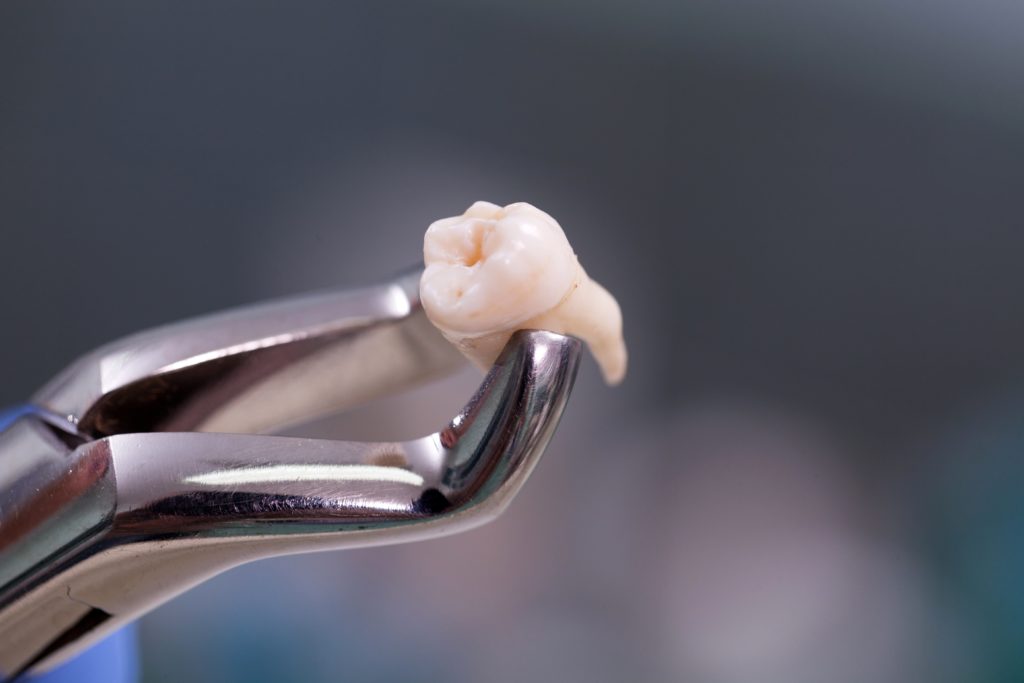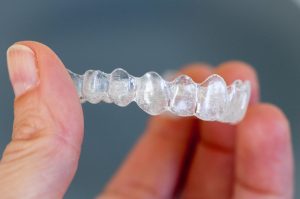Wisdom Teeth Extraction: What to Expect from Your Upcoming Procedure
August 11, 2020

Scheduling a wisdom teeth extraction procedure can bring up many questions and concerns for patients but knowing what to expect and how to prepare can make all the difference. Whether you’ve recently had your wisdom teeth pulled or you’re planning to have the procedure done in the near future, there are certain steps you should take to ensure the process goes as smoothly as possible in order to optimize your recovery period.
Wisdom Teeth Extraction Preparation
Wisdom teeth extraction is one of the most common oral surgeries performed today. In fact, the American Association of Oral and Maxillofacial Surgeons estimate that 90% of people will have at least one of their wisdom teeth pulled, usually between the ages of 17-25. This third set of molars is generally unnecessary and most often causes issues with space in the mouth or crowding of existing teeth, which is why they are so often recommended to be removed.
The best way to prepare for this common procedure is by first discussing the process with your Lancaster dentist. By having an examination and consultation with your dental professional, you’ll have a full picture of not only the positioning of your incoming wisdom teeth, but also, the best understanding of why they need to be removed. Some of the most common reasons include:
- Impacted teeth
- Swelling or pain while eating
- Limited jaw movement
- Teeth crowding
Know the Process
Once you have met with your family dentist Lancaster and determined you need to have a wisdom teeth extraction procedure, the next step in preparation is to know what to expect. Since dental extractions include either a local anesthetic or sedation, patients should discuss each option with their dental professional to determine which method is best for their procedure. Knowing the requirements for preparations such as fasting periods prior to your surgery should also be discussed in advance.
How to Maximize Your Recovery
Your recovery process from having a wisdom tooth extraction performed will vary from person to person. In general, however, most begin to resume somewhat normal activities within a few days. A few tips to keep in mind to help your individual recovery process go as smoothly as possible include:
- Maintain a liquid diet (no straws) for the first full day of recovery.
- Press down with gauze or tea bags to help with initial bleeding gums.
- Keep a soft food only diet for the first week (no foods that require chewing).
- Discuss recommended pain relievers with your dentist.
- Make sure your mouth and surgical site is kept clean, but no excessive brushing until healed.
Your dental professional will be able to give more specific recovery guidelines and tips, so be sure to discuss these with your dentist prior to your surgery in order to be prepared.
Most Common Restorative Dentistry Practices and How to Plan for Them
June 25, 2020

Restorative dentistry involves any dental procedures used to restore the structure and functionality of your teeth and can involve any number of different treatment options. To determine if you’re in need of restorative dentistry services, it’s important to first understand what these services may be.
What Is Restorative Dentistry?
To put it simply, restorative dentistry involves any dental process which focuses on repairing or restoring damaged oral structures. This can include procedures such as fillings, bridges, and implants among many other services. It’s important to note, however, that restorative dentistry does not include those procedures that are considered cosmetic such as veneers or whitening services.
Most Common Restorative Dentistry Practices
While each case is different, there are a few restorative dentistry procedures that are among the most common services provided to our patients. Knowing whether your prospective procedure falls under restorative or cosmetic can help save you thousands in terms of what’s billed as an elective practice versus restorative. Here is a look at some of the most common restorative dentist Lancaster services treated by our professionals:
- Fillings. Whether they are amalgam (metal) or composite (white), fillings are the most common restorative dentistry we see. These are used to structurally repair and stabilize a tooth that has been deteriorated from cavities and decay.
- Crowns. If a tooth has suffered significant decay and is irreparable via fillings, it may be time for dental crowns (or caps as they are sometimes referred). These restorative processes involve constructing a “cap” that covers the entire tooth down to the gumline in order to protect it from further damage.
- Bridges. Similar to crowns, bridges are used to cover an area that has suffered a tooth extraction. It involves several crowns that are merged together and then bonded to the nearest healthy teeth on either side of the gap in order to “bridge” the missing tooth with a porcelain replacement.
- Bonding. In the case of chipped or broken teeth, bonding is usually the restorative practice utilized for repairs. Bonding is the process of recreating the missing portion of enamel by forming and bonding composite materials to the remaining tooth.
- Implants. When damage is significant, dental implants may be a viable decision. This is the process of replacing existing tooth structures with implanted artificial teeth. These are attached by a metal post that is essentially bonded to your jawbone via a screw-like metal “root.”
How to Prepare for Major Dental Work
Restorative dentistry can provide much needed relief for a variety of oral ailments, but it’s important to be fully informed prior to scheduling any such procedure. Be sure to thoroughly discuss your options with your Lancaster dentist in order to know what to expect and to make the right choice for your situation. You’ll also want to verify any potential procedures are covered by your insurance plans. This will help you avoid any surprise charges down the road from procedures that were deemed elective rather than restorative. Planning for your dentistry services in advance by doing your research and discussing things with your dentist is the best way to keep the pain away – both physically and financially.
Childhood Cavities: The Most Common Causes of Tooth Decay
May 20, 2020

When it comes to oral hygiene in young children, one of the most common ailments is tooth decay – or cavities. The breakdown of enamel in young teeth occurs much more frequently than in our adult lives, largely due to factors such as improper care and the consumption of detrimental foods and beverages. The best way to combat the issue is by understanding first what the most common causes of tooth decay are and second, how to prevent it from occurring.
(more…)What to Expect at Your Child’s First Dental Visit
May 13, 2020

Whether you’re preparing for your child’s first dental visit or you’re planning ahead, you likely have a few questions. Oftentimes parents find themselves wondering not only when to bring their child in for their first checkup, but also, what to expect in anticipation of an upcoming appointment. Knowing a few basic details ahead of time can help simplify the process and ensure your child is getting the best possible oral care.
(more…)Lancaster Dentistry Stops the Pain of Tooth Sensitivity
April 16, 2018
 When you sip your morning cup of coffee or bite into an ice cream cone, do you feel sudden pain in your teeth? If tooth sensitivity is causing you to avoid your favorite foods and drinks, you are not alone. In fact, it is estimated that 3 million people a year are diagnosed with the condition known as dentin sensitivity. It typically occurs as you age because your enamel becomes thinner; however, it can develop in anyone. While it may seem like you have no choice but to live with the discomfort, you can get the relief you need with Lancaster dentistry. Using a simple treatment, you can help to strengthen the enamel, so you can enjoy your favorite foods again.
When you sip your morning cup of coffee or bite into an ice cream cone, do you feel sudden pain in your teeth? If tooth sensitivity is causing you to avoid your favorite foods and drinks, you are not alone. In fact, it is estimated that 3 million people a year are diagnosed with the condition known as dentin sensitivity. It typically occurs as you age because your enamel becomes thinner; however, it can develop in anyone. While it may seem like you have no choice but to live with the discomfort, you can get the relief you need with Lancaster dentistry. Using a simple treatment, you can help to strengthen the enamel, so you can enjoy your favorite foods again.
(more…)
Are You Considering Invisalign in Lancaster?
January 12, 2017
 Are you finally ready to get the straight smile you have always wanted? That is great! To start your journey to a beautiful smile, it is important to understand all your options. While you could choose traditional metal braces, which are effective, you could choose the most preferred orthodontic treatment. Invisalign has quickly become the top choice for orthodontics because it offers a nearly invisible treatment. At Lancaster Family Smiles, we offer Invisalign in Lancaster to give you a straight smile without the disadvantages of traditional braces.
Are you finally ready to get the straight smile you have always wanted? That is great! To start your journey to a beautiful smile, it is important to understand all your options. While you could choose traditional metal braces, which are effective, you could choose the most preferred orthodontic treatment. Invisalign has quickly become the top choice for orthodontics because it offers a nearly invisible treatment. At Lancaster Family Smiles, we offer Invisalign in Lancaster to give you a straight smile without the disadvantages of traditional braces.
(more…)
What can my Lancaster Family Dentist do for me?
June 3, 2016
 The short answer to the question, “What can my Lancaster family dentist do for me” is just about everything you need to have a healthy and attractive smile. At Lancaster Family Smiles, Dr. Gupta and her team of dental hygienists offer a wide range of general, restorative and cosmetic dentistry treatments, so you don’t have to go anywhere else to have the smile you deserve.
The short answer to the question, “What can my Lancaster family dentist do for me” is just about everything you need to have a healthy and attractive smile. At Lancaster Family Smiles, Dr. Gupta and her team of dental hygienists offer a wide range of general, restorative and cosmetic dentistry treatments, so you don’t have to go anywhere else to have the smile you deserve.



